A veggie garden for chickens
beesneeds
9 years ago
Related Stories

FARM YOUR YARDHow to Build a Raised Bed for Your Veggies and Plants
Whether you’re farming your parking strip or beautifying your backyard, a planting box you make yourself can come in mighty handy
Full Story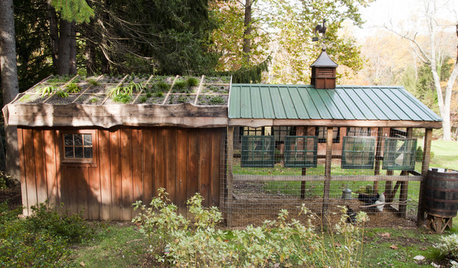
FARM YOUR YARDHouzz Call: Show Us Your One-of-a-Kind Chicken Coops
Do you have a fun or stylish backyard shelter for your feathered friends? Post your pictures and stories in the Comments!
Full Story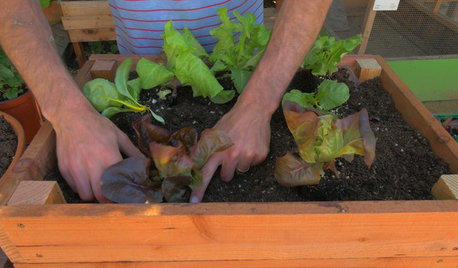
HOUZZ TVHouzz TV: How to Make and Plant a Veggie Box
See how to start edibles from seed, then transfer the seedlings to a box on stilts to make harvesting more fun
Full Story
EDIBLE GARDENSHow to Grow Your Own Sweet Summer Crops
This guide will help any gardener get started on growing the freshest warm-season veggies and berries for summer
Full Story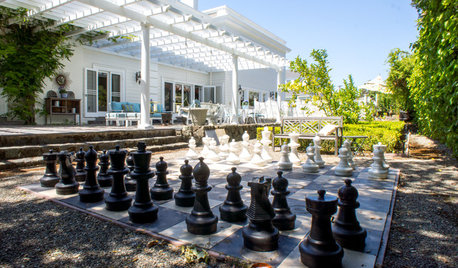
INSPIRING GARDENSChickens, Chess and Swimming Star in a Silicon Valley Yard
Some fowl play is afoot in these outdoor rooms, but the family members and their many guests have a pretty good time too
Full Story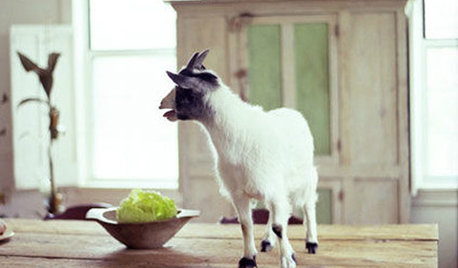
LIFEEasy Green: Modern Homesteaders Stake a Claim
With more options for raising chickens, growing edibles and keeping bees than ever, suburban and city folk are rediscovering a lost art
Full Story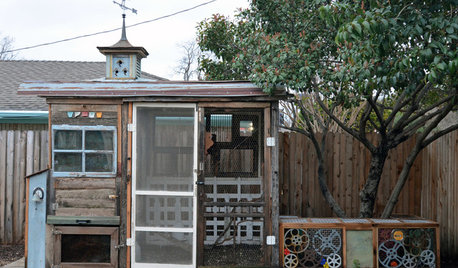
OUTBUILDINGSQuirky Meets Practical in a Dallas Chicken Coop
These hens have a stylish backyard coop built from recycled materials
Full Story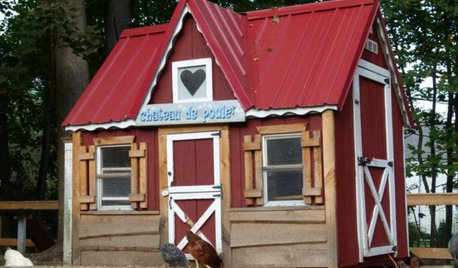
GARDENING AND LANDSCAPINGChicken Coops That Rule the Roost
These 8 chicken coops designed by Houzz users will have you clucking in admiration — and maybe even planning a henhouse of your own
Full Story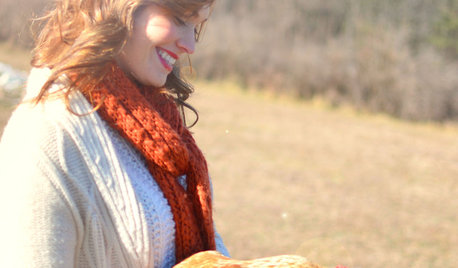
GARDENING AND LANDSCAPINGRaise Backyard Chickens Without Ruffling Neighbors' Feathers
Before you build a coop in the backyard, follow these strategies to help keep your neighbors from squawking
Full Story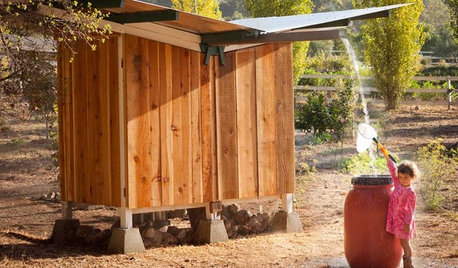
FARM YOUR YARDCollecting Rainwater and Eggs From a California Chicken Coop
See how a butterfly roof helps a hen home’s design soar into double-duty territory
Full Story






ZachS. z5 Platteville, Colorado
zzackey
Related Professionals
Fillmore Landscape Architects & Landscape Designers · Kenmore Landscape Architects & Landscape Designers · Salisbury Landscape Architects & Landscape Designers · Wareham Landscape Architects & Landscape Designers · Allentown Landscape Contractors · Apollo Beach Landscape Contractors · Munster Landscape Contractors · Overland Park Landscape Contractors · Peoria Landscape Contractors · West Covina Landscape Contractors · West Haverstraw Landscape Contractors · Westchester Landscape Contractors · Yukon Landscape Contractors · Four Corners Landscape Contractors · Ashburn Driveway Installation & Maintenancetishtoshnm Zone 6/NM
nancyjane_gardener
lemonthyme
glib
junco East Georgia zone 8a
galinas
glib
naturegirl_2007 5B SW Michigan
Charlie
planatus
lantanascape
glib
nexev - Zone 8b
glib
yakin_ag
thedudefrom1976
beesneedsOriginal Author
JoppaRich
glib
Kippy
nexev - Zone 8b
lisamann
Tracy West
Tracy West
purslanegarden
zzackey